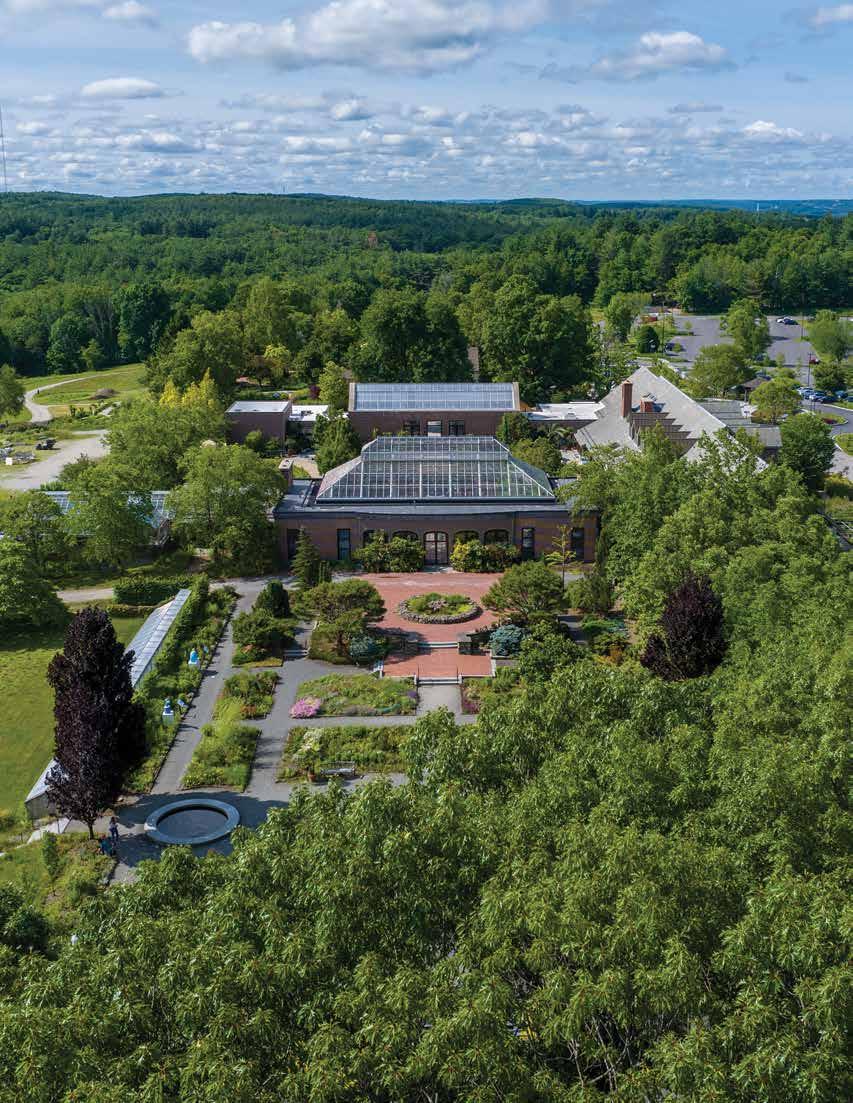




New England Botanic Garden at Tower Hill opened in Boylston, MA, in 1986, but the organization’s history dates back much further. The Garden is owned and operated by the Worcester County Horticultural Society (WCHS), one of the oldest active horticultural societies in the country. Established in 1842, WCHS grew to be a cornerstone institution for the region. For decades, from its downtown Worcester headquarters, the society held exhibitions that celebrated Worcester County’s thriving agricultural community. By the 1940s, however, the large country estates that supported such shows began to diminish and exhibition entries declined. In response, WCHS set out to cultivate its own gardens. The vision of a permanent botanic garden for the public to enjoy grew.
Discover a 200-acre, world-class garden in the heart of New England. At this living museum, visitors experience the wonder of plants while exploring 18 distinct formal and naturalistic garden spaces, walking trails, and more. Educational programs, events and exhibitions, shopping and dinning opportunities, and stunning views of the Wachusett Reservoir make New England Botanic Garden a top regional destination. The Garden is proud to be a place where everyone belongs, where wandering is always welcome, and where no two visits will ever be the same.
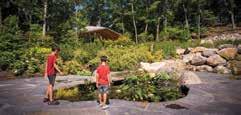


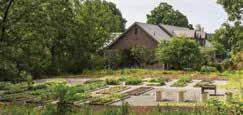

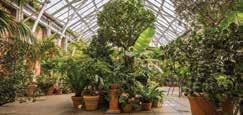
A whimsical garden designed for families with interactive play features and hundreds of perennials, shrubs, trees, and a pond of seasonal aquatic plants.
A universally accessible garden featuring raised beds, living walls, and plants selected for their multisensory appeal.
A woodland native plant garden that spans more than five acres and features a variety of spring ephemerals and native shrubs.
A hands-on, youth-oriented garden that demonstrates agricultural techniques for a more sustainable future.
A large-scale garden with an array of exquisite trees and shrubs, as well as thousands of spring bulbs and summer-blooming perennials.
Subtropical conservatories that house collections of non-hardy plants such as citrus, palms, agave, camellias, orchids, and more.
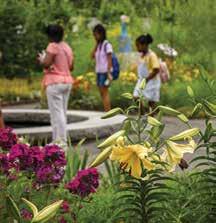
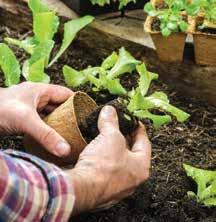


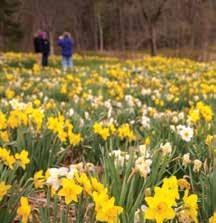

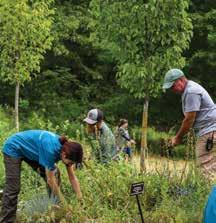
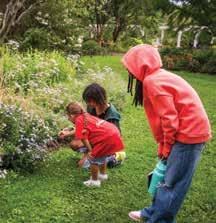
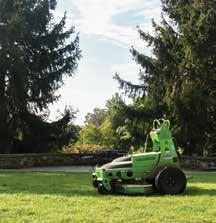
New England Botanic Garden is determined to do and be more for the region. Recent years have been marked with many important milestones.
Growing Boldly, $28M capital campaign, launched to support projects that make the Garden more accessible and resilient.
The Garden is re-accredited by the American Alliance of Museums.
Acquisition of the Kim Property expands the Garden’s footprint by 26 acres.
Universally designed entry way and expanded parking lot construction are completed as part of Growing Boldly.
2023
The Climate Garden, a hands-on youth-oriented garden focused on sustainable agriculture, opens.
The Garden is voted “Top Botanic Garden in the U.S.” by TravelAwaits.
Acquisition of the Joslin Lot expands the Garden’s footprint by 14 acres.
Acquisition of the Lucia Property expands the Garden’s footprint by seven acres.
Restoration of the Frank L. Harrington Sr. Orchard begins, preserving a historic collection of 119 heirloom apple varieties.
The Ramble, a garden space designed for the young and young at heart, opens to the public.
The Garden announces its name change from “Tower Hill Botanic Garden” to “New England Botanic Garden at Tower Hill.”
The Garden becomes the first botanic garden in the nation to be certified a Green Zone by the American Green Zone Alliance for efforts to decarbonize.
The Garden affiliates with two leading environmental organizations, the U.S. branch of Botanic Gardens Conservation International and Ecological Landscape Alliance.
The Garden serves as a host for the American Public Gardens Association annual conference.
Public gardens play a vital role in the wellbeing of our world. They connect people with nature. They also protect scientifically significant living plant collections and provide community education. In response to climate change and biodiversity loss, botanic gardens around the world are doing more to conserve natural resources, engage in research, and inspire environmental stewardship. Projects and initiatives at New England Botanic Garden support ecosystem health at the Garden and beyond so that people, plants, and wildlife thrive on this planet for generations to come.
From decarbonizing horticulture operations to sourcing local plant material and limiting plastic use in the café and Garden Shop, New England Botanic Garden weaves sustainable initiatives throughout operations.
Though in-school programs and collaborations with area nonprofits, the Garden educates youth about plant-based solutions to climate change. Annual Community Greening awards celebrate nonprofits, businesses, municipalities, and individuals for using plants to build healthy, vibrant communities.
The Garden’s Frank L. Harrington Sr. Orchard features a historic collection of 119 heirloom apples, some of which are extremely rare, according to recent DNA analysis. By caring for the orchard and sharing information about the collection, the Garden preserves the region’s agricultural history and demonstrates the importance of agricultural biodiversity.
With its partner, the American Chestnut Cooperators’ Foundation (ACCF), the Garden is involved in efforts to restore American chestnuts to their native range using trees from an ACCF breeding program that are naturally blight resistant and one hundred percent Castanea dentata. The Garden planted more than 200 American chestnut seeds and seedlings in naturalistic spaces and monitors their growth as part of this initiative.
Learn more about these projects and more at nebg.org/environment-and-sustainability.


In 2024, New England Botanic Garden announced a formal affiliation with leading international and national environmental organizations, the U.S. branch of Botanic Gardens Conservation International (BGCI-US) and the Ecological Landscape Alliance (ELA). This exciting partnership, rooted in strong mission alignment, brings the leadership base of both BGCI-US and ELA to the Garden and strengthens all three organizations in plant conservation, research, and ecological horticulture practice. ELA and BGCI-US are led by Mark Richardson, Director of Strategic Horticulture Partnerships.


Families, children, and adults find fun and engaging nature-based learning opportunities at New England Botanic Garden year-round. A robust calendar of activities includes lectures with horticultural experts, home gardening classes, visual arts classes, health and wellness workshops, kids arts and crafts, summer drop-off programs for children, and more.

Exciting, nature-inspired events and exhibitions celebrate the wonder of plants and showcase the art and science of horticulture. Throughout the year, the Garden hosts talented artists and musicians that draw visitors from around the region. Annual exhibits and events include :
• The Orchid Exhibition
• Music in Bloom
• Thursday Summer Evenings
• Summer & Fall Exhibits
• Gnomevember
• Night Lights

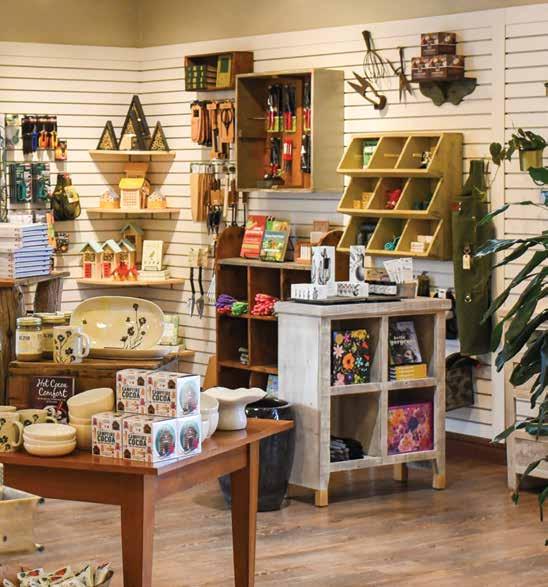
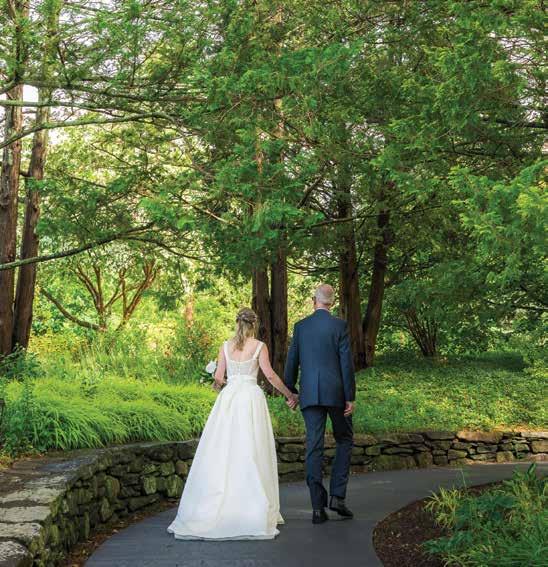
Located in the Visitors Center, the Garden Shop features seasonal houseplants, gardening tools, books for all ages, jewelry, stationary, nature-inspired toys for children, and more. Meanwhile, the Farmer and the Fork café, open seven days a week for lunch, offers a variety of menu items prepared with fresh, locally-sourced ingredients.
Each year, over 300 private events, from weddings to children’s birthday parties, celebrations of life, professional conferences, retreats, and more, are hosted across New England Botanic Garden grounds.

New England Botanic Garden’s experienced and knowledgeable leaders enjoy connecting with members of the media on topics of horticulture, ecological approaches to gardening and landscape design, New England’s native plants, urban forestry, the role of public gardens, and more.

Grace Elton (she/her/hers) is CEO of New England Botanic Garden at Tower Hill, a 200-acre garden in Boylston, MA. Since 2017, she has increased the Garden’s annual budget by 59%, annual visitation by 55%, and membership by 27%. She led the largest comprehensive capital campaign in the Garden’s history, raising over $31M to build a children’s garden, increasing infrastructure and ADA accessibility, increasing the Garden’s physical footprint by over 60 acres, and growing the endowment. Elton has a strong public horticulture background with experience at premier gardens in the United States and United Kingdom. While serving as director of horticulture, Lewis Ginter Botanical Garden in Richmond, VA garnered national recognition as a top 10 botanical garden by USA Today and achieved the National Medal from the Institute of Museum and Library Services. She also served as horticulture supervisor and adjunct professor at the 118-acre Ambler Arboretum of Temple University in Ambler, Pennsylvania. As a recipient of the prestigious Martin McLaren Horticulture Scholar award presented by the Garden Club of America, Elton studied botanic garden education, practical horticulture and landscape design in England at the Royal Botanic Gardens Kew, Royal Horticulture Society Rosemoor, the Eden Project, and the Chelsea Physic Garden; and in Scotland at the Royal Botanic Gardens Edinburgh. Elton has a Master of Science in public horticulture with a certificate in museum studies from the Longwood Graduate Program, University of Delaware. Her Bachelor of Science degree is in environmental horticulture with a public gardens management specialization from University of Florida.
She currently serves as Director at Large for Discover Central Massachusetts and was previously the Treasurer of the Board of Directors for the American Public Gardens Association. Elton was honored as a “Top 40 Under 40” for Richmond, VA’s Style Weekly magazine in 2013 and “Top 40 Under 40” for Worcester, MA’s Worcester Business Journal in 2018. Elton was chosen for the 2019 Distinguished Young Alumni Award from the College of Agriculture and Natural Resources of the University of Delaware. She was also honored by the Worcester Business Journal on their “Power 50” list in both 2019 and 2023.
She currently serves as Director at Large for Discover Central Massachusetts and was previously the Treasurer of the Board of Directors for the American Public Gardens Association. Elton was honored as a “Top 40 Under 40” for Richmond, VA’s Style Weekly magazine in 2013 and “Top 40 Under 40” for Worcester, MA’s Worcester Business Journal in 2018. Elton was chosen for the 2019 Distinguished Young Alumni Award from the College of Agriculture and Natural Resources of the University of Delaware. She was also honored by the Worcester Business Journal on their “Power 50” list in both 2019 and 2023.
Grace Elton is CEO of New England Botanic Garden at Tower Hill, a 200-acre garden in Boylston, MA. Since 2017, she has increased the Garden’s annual budget by 59%, annual visitation by 55%, and membership by 27%. She led the largest comprehensive capital campaign in the Garden’s history, raising over $31M to build a children’s garden, increasing infrastructure and ADA accessibility, increasing the Garden’s physical footprint by over 60 acres, and growing the endowment. Elton has a strong public horticulture background with experience at premier gardens in the United States and United Kingdom. While serving as director of horticulture, Lewis Ginter Botanical Garden in Richmond, VA garnered national recognition as a top 10 botanical garden by USA Today and achieved the National Medal from the Institute of Museum and Library Services. She also served as horticulture supervisor and adjunct professor at the 118-acre Ambler Arboretum of Temple University in Ambler, Pennsylvania. As a recipient of the prestigious Martin McLaren Horticulture Scholar award presented by the Garden Club of America, Elton studied botanic garden education, practical horticulture and landscape design in England at the Royal Botanic Gardens Kew, Royal Horticulture Society Rosemoor, the Eden Project, and the Chelsea Physic Garden; and in Scotland at the Royal Botanic Gardens Edinburgh. Elton has a Master of Science in public horticulture with a certificate in museum studies from the Longwood Graduate Program, University of Delaware. Her Bachelor of Science degree is in environmental horticulture with a public gardens management specialization from University of Florida. She serves as Treasurer of the Board of Directors for the American Public Gardens Association and Director at Large for Discover Central Massachusetts. Elton was honored as a “Top 40 Under 40” for Richmond, VA’s Style Weekly magazine in 2013 and “Top 40 Under 40” for Worcester, MA’s Worcester Business Journal in 2018. Elton was chosen for the 2019 Distinguished Young Alumni Award from the College of Agriculture and Natural Resources of the University of Delaware. She was also honored by the Worcester Business Journal on their “Power 50” list in both 2019 and 2023.
Grace Elton (she/her/hers) is CEO of New England Botanic Garden at Tower Hill, a 200-acre garden in Boylston, MA. Since 2017, she has increased the Garden’s annual budget by 59%, annual visitation by 55%, and membership by 27%. She led the largest comprehensive capital campaign in the Garden’s history, raising over $31M to build a children’s garden, increasing infrastructure and ADA accessibility, increasing the Garden’s physical footprint by over 60 acres, and growing the endowment. Elton has a strong public horticulture background with experience at premier gardens in the United States and United Kingdom. While serving as director of horticulture, Lewis Ginter Botanical Garden in Richmond, VA garnered national recognition as a top 10 botanical garden by USA Today and achieved the National Medal from the Institute of Museum and Library Services. She also served as horticulture supervisor and adjunct professor at the 118-acre Ambler Arboretum of Temple University in Ambler, Pennsylvania. As a recipient of the prestigious Martin McLaren Horticulture Scholar award presented by the Garden Club of America, Elton studied botanic garden education, practical horticulture and landscape design in England at the Royal Botanic Gardens Kew, Royal Horticulture Society Rosemoor, the Eden Project, and the Chelsea Physic Garden; and in Scotland at the Royal Botanic Gardens Edinburgh. Elton has a Master of Science in public horticulture with a certificate in museum studies from the Longwood Graduate Program, University of Delaware. Her Bachelor of Science degree is in environmental horticulture with a public gardens management specialization from University of Florida.

Steve Conaway, Ph.D. (he/him/his) is Director of Horticulture at New England Botanic Garden at Tower Hill. Conaway developed an early passion for plant science and sustainability working in crop diversity preservation on farms in New England. He studied environmental horticulture at the University of New Hampshire where he helped implement the campus-wide composting program. He pursued an interest in tropical plant science and invasive species on the island of Hawaii, working in horticulture and later as a visiting scholar for the Pacific Basin Agricultural Research Center. Conaway studied plant pathology at The Pennsylvania State University where his doctoral dissertation centered on the control of invasive weeds with naturally occurring fungal pathogens. As Conservation and Outreach Director at Greenwich Land Trust, he led educational programming and directed ecological restoration projects on 750 acres of protected open space. Before joining the team at NEBG, Conaway worked as the Associate Director of Horticulture at Wave Hill where he focused on the health and beauty of the gardens, greenhouses, and woodlands.
